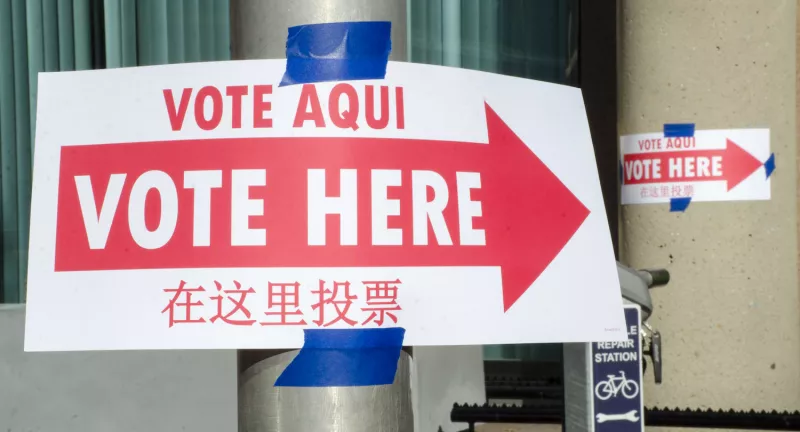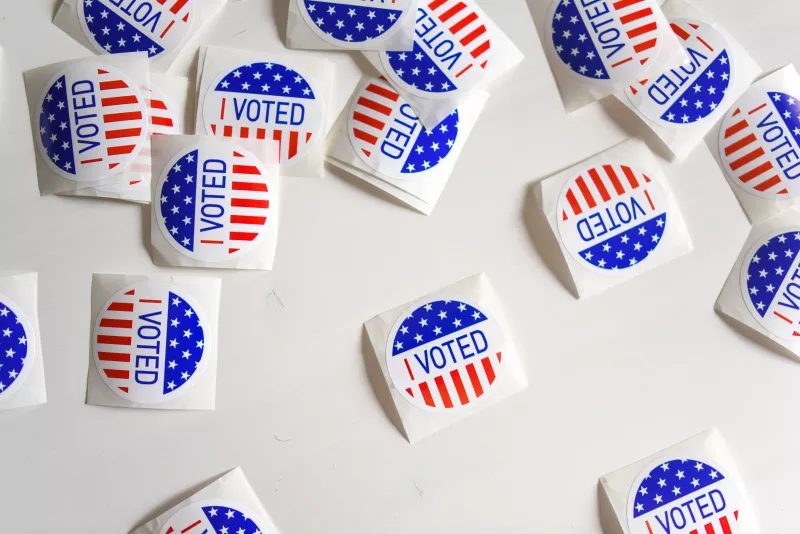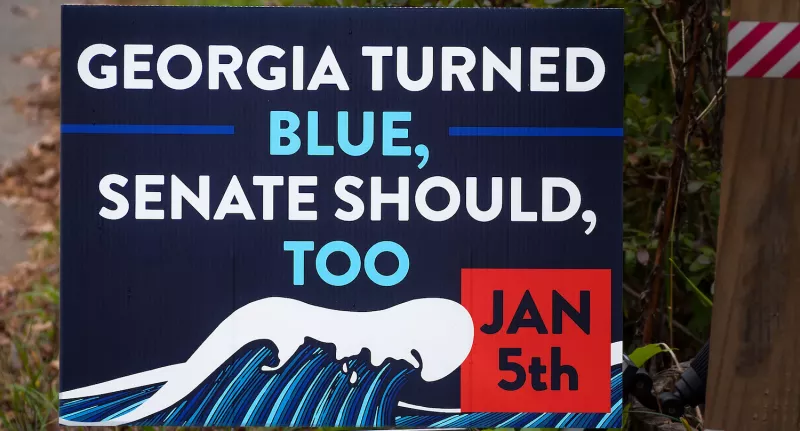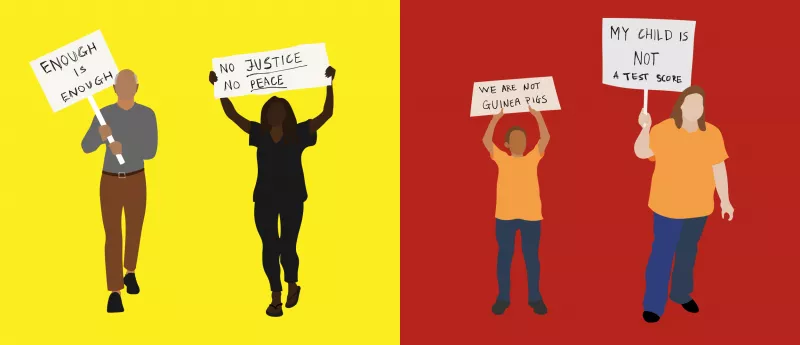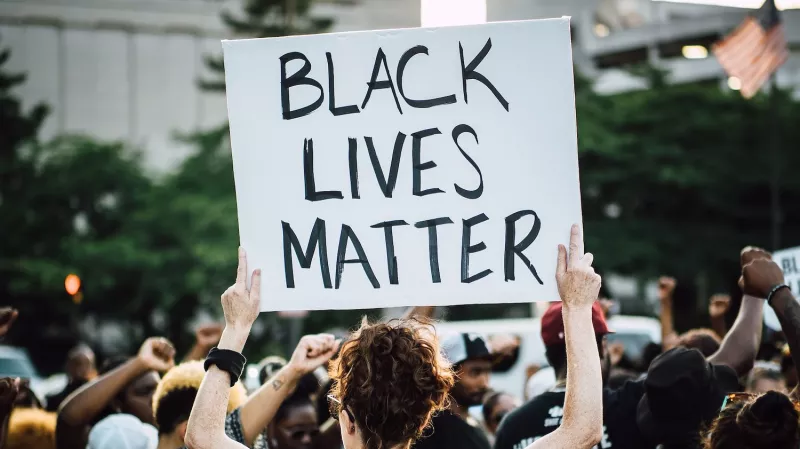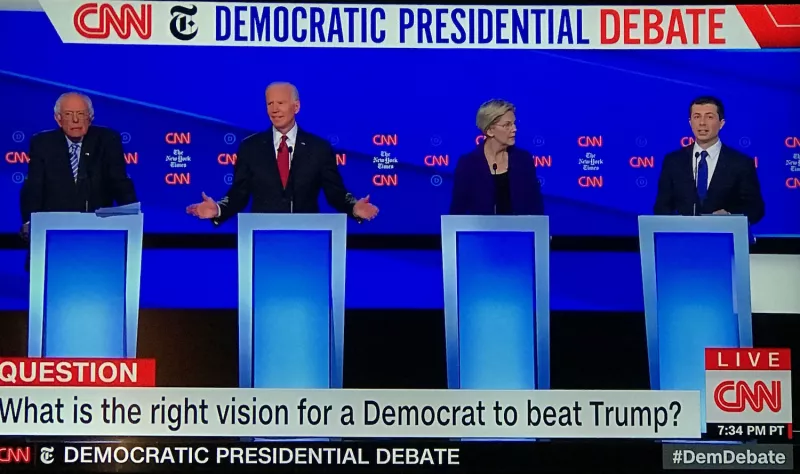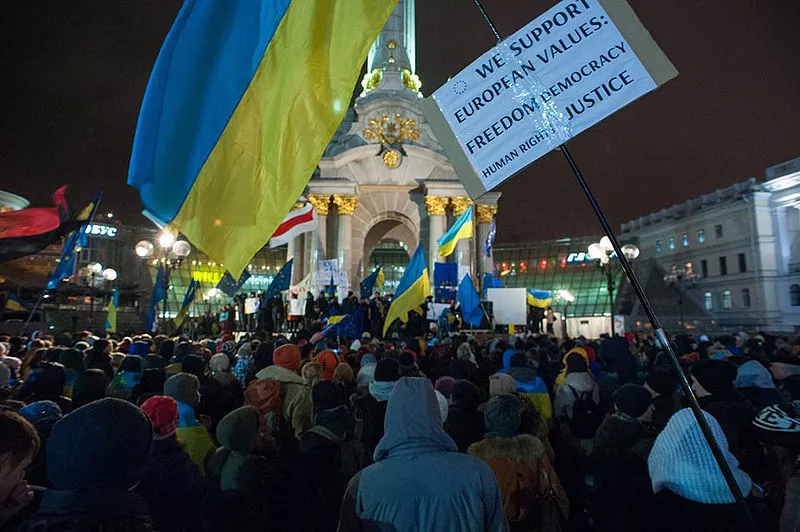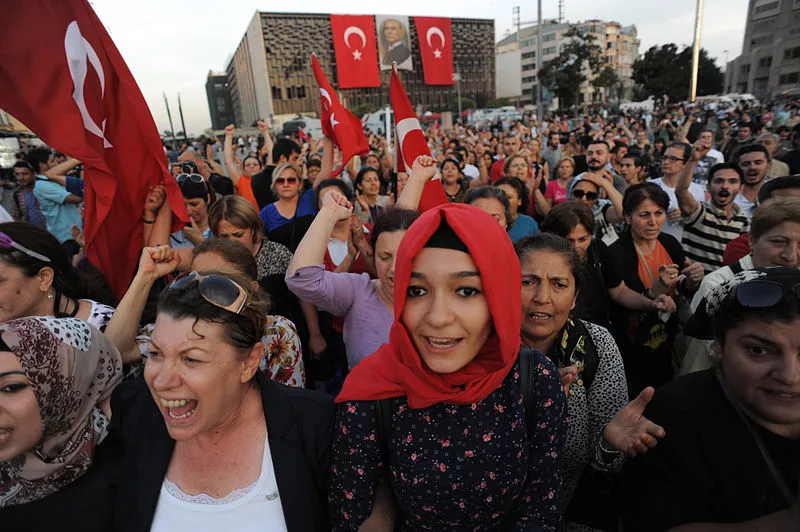Reports & Analysis
CSMAP produces rigorous, data-driven reports and analyses on policy relevant topics.
Search or Filter
-
Analysis
Who Has a Policy that Would Benefit You? More Voters Say Trump.
National survey data from the 2016, 2020, and 2024 elections shed light on how candidates' campaign strategies impact voter policy recall.
November 2, 2024
-
Analysis
How Americans’ Confidence in Technology Firms has Dropped
Results from the American Institutional Confidence poll's second wave show that the public's confidence in technology, and tech companies, has markedly decreased over the past five years.
June 14, 2023
-
Analysis
Latinos Who Use Spanish-Language Social Media Get More Misinformation
That could affect their votes — and their safety from covid-19.
November 8, 2022
-
Analysis
Republicans Are Increasingly Sharing Misinformation
Republican candidates have dramatically increased how much they share from unreliable sources in just two years.
August 29, 2022
-
Analysis
Gender-Based Online Violence Spikes After Prominent Media Attacks
Our research finds that after a prominent male media personality targets a female journalist, the prevalence of hateful speech targeting those journalists increases in the immediate aftermath, often taking days to decrease.
January 26, 2022
-
Analysis
Twitter Banned Marjorie Taylor Greene. That May Not Hurt Her Much.
She’s gaining followers and ‘likes’ on other social media platforms, our research finds.
January 14, 2022
-
Analysis
Trendless Fluctuation? How Twitter’s Ethiopia Interventions May (Not) Have Worked
Twitter’s decision to deactivate trending topics in Ethiopia did not reduce the volume or toxicity of tweets about the civil war.
January 11, 2022
-
Analysis
Twitter Amplifies Conservative Politicians. Is it Because Users Mock Them?
Our research suggests conservative politicians are ‘ratioed’ more often, which may explain why they’re in your timeline.
October 27, 2021
-
Analysis
Which Republicans Are Most Likely to Think the Election Was Stolen?
Those who dislike Democrats and don’t mind white nationalists. That includes plenty of Republicans with college educations.
January 19, 2021
-
Analysis
Is Social Media to Blame for Violence at the U.S. Capitol?
This explains how social media can both weaken — and strengthen — democracy. Groups opposed to fundamental tenets of liberal democracy also have found their megaphone.
January 7, 2021
-
Report
Issue Discussion in the Georgia Senate Elections
Taking Twitter data, we want to better understand which issues matter most to voters in the Georgia Senate election. We find that voters pick up on topics mentioned in attack ads and that voters tend to not view this as a national election.
December 22, 2020
-
Report
Influential Users in the Common Core and Black Lives Matter Social Media Conversation
Continuing previous work, we find that politically motivated popular users have the most influence in online discussions around Black Lives Matter and Common Core State Standards.
December 16, 2020
-
Analysis
How Trump Impacts Harmful Twitter Speech: A Case Study in Three Tweets
We examined three recent tweets from the president and found that harmful speech on Twitter spiked in their immediate aftermath, but soon returned to baseline.
October 22, 2020
-
Report
Online Issue Politicization: How the Common Core and Black Lives Matter Discussions Evolved on Social Media
To better understand how an issue becomes politicized over time, we examine Black Lives Matter and Common Core State Standards and track how they evolved over time.
September 4, 2020
-
Report
Debate Twitter: Mapping User Reactions to the 2020 Democratic Presidential Primary Debates
As the largest Democratic primary field in modern history continues to narrow, we wanted to examine how the debates drove the conversation online, and specifically how voters changed their opinions over time.
March 3, 2020
-
Analysis
Could Anything – Even Taylor Swift – Boost the Youth Vote in 2018?
Last week, Taylor Swift endorsed two candidates on Instagram, speaking to a group that could use encouragement: young people, who often fail to vote in midterm elections.
October 18, 2018
-
Report
The Islamic State's Battle for the Global Twittersphere
Although ISIS continues to spread its message through social media, our data suggests that pro-ISIS communication is met by a much larger amount of anti-ISIS content.
July 27, 2015
-
Report
Tweeting the Revolution: Social Media Use and the #Euromaidan protests
To better understand how social media is used in a protest setting, we collect data from the Euromaidan protests in Ukraine and find that social media provides a space to share information, as well as mobilize offline organization.
February 28, 2014
-
Analysis
Tweeting the Revolution: Social Media Use and the #Euromaidan Protests
Our analysis of Twitter and Facebook data suggests that social media continues to be a pivotal organization tool for those in Kiev and also the most relevant mechanism for disseminating and exchanging information both within Ukraine and abroad.
February 21, 2014
-
Analysis
As Police Raid Protests in Ukraine, Protesters Turn to Twitter and Facebook
Social media continues to play an important role in the protests in Ukraine. As the situation changes, social media users are adapting their strategies online to meet shifting needs as they emerge on the ground.
December 11, 2013
-
Analysis
How Ukrainian Protestors are Using Twitter and Facebook
We collected tweets mentioning the most common Twitter hashtags and available Facebook data of the Kiev protest since the morning of November 25, and found that Ukrainian social media users are strategically using the tools available to them to organize and spread information about the protests.
December 4, 2013
-
Report
A Breakout Role for Twitter? The Role of Social Media in the Turkish Protests
To better understand the effects of collective action and protest organization, we analyze 22 million tweets related to Turkish protests. We find that online activity has a spillover effect into offline action.
July 1, 2013
-
Analysis
A Breakout Role for Twitter? Extensive Use of Social Media in the Absence of Traditional Media by Turks in Turkish in Taksim Square Protests
This trend suggests that Turkish protesters are replacing the traditional reporting with crowd-sourced accounts of the protest expressed through social media.
June 1, 2013


